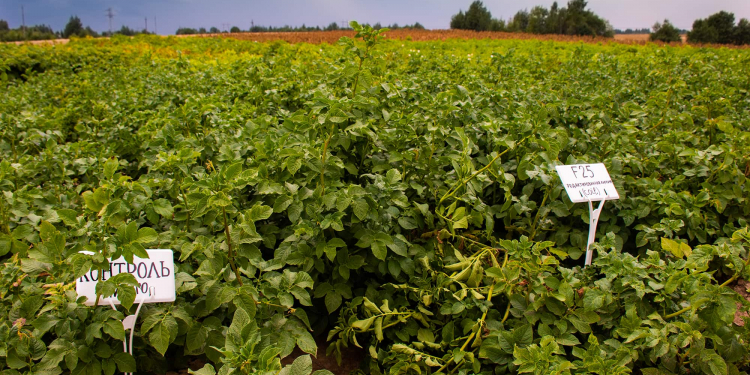One million euros from funds from the Arable Farming Strategy 2035 are helping to breed virus and nematode-resistant potato varieties. Genetically modified breeding material should not be created.
Varieties that are resistant to pests and stress are required. This also applies to potatoes, which protect themselves from nematodes and viruses. Such resistance breeding, which requires less plant protection, is required by the Arable Farming Strategy 2035 .
In Berlin, Agriculture Minister Julia Klöckner presented grant notices for 1 million euros for the ‘Adlatus’ breeding project this week. This also works with the gene scissors CRISPR / Cas on virus and nematode resistant potato varieties .
That is the aim of the breeding project for fungus-resistant potato varieties
The aim of the joint project ‘Adlatus’ is to strengthen existing defense levels in potatoes and to establish new mechanisms against a number of viruses and nematodes. The focus is on these pathogens:
- Root knot nematodes,
- Potato virus Y,
- Potato leaf roll virus,
- Tobacco Rattle Virus
The project is intended to make a contribution to two fields of action of the arable farming strategy:
- Plant breeding with the development of resistant varieties that are adapted to the location,
- Plant protection with the strengthening of integrated plant protection
These are the beneficiaries of the EUR 1 million funding
The project participants are the following potato growers and research institutions:
- Böhm-Nordkartoffel Agrarproduktion GmbH & Co. OHG (BNA), Ebstorf,
- Westfälische Wilhelms-Universität Münster,
- Julius Kühn Institute (JKI),
- Fraunhofer Institute for Molecular Biology and Applied Ecology, Aachen.

This breeding work supports the arable farming strategy
The pathogens and viral diseases mentioned cause enormous losses in the potato harvest every year. They also pose multiple difficulties for cultivation in Germany.
The CRISPR / Cas gene scissors are also used in the project. It is intended to test hypotheses for the utilization of potential resistance genes. Genetically modified breeding material is not produced, according to the Federal Ministry of Agriculture.
Julia Klöckner calls for new, innovative plant research. The importance of resistant varieties continues to increase due to climate change. Klöckner: “We want to maintain and expand our lead in this area. Modern methods like gene scissors can expand the toolbox ”. In this way, the breeding process is accelerated, which “naturally” takes longer.
www.agrarheute.com Virus-resistant potato science-and-education







